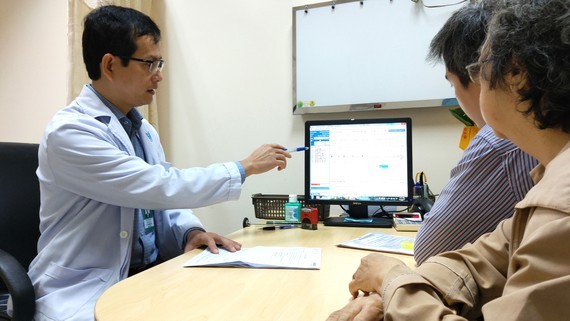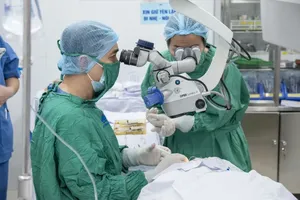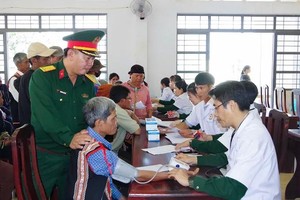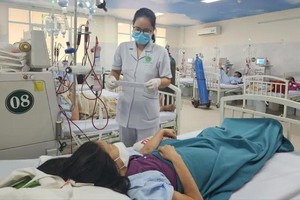
Statistically, around 85,000 Vietnamese people have Parkinson disease. The Ho Chi Minh City Medicine University Hospital’s statistics has shown that nearly 27,000 Parkinson patients are under treatment from October, 2018.
Every month, about 500-600 Parkinson patients visit the infirmary.
Persistent body tremor is the most common symptom of Parkinson’s disease in the elderly. Sluggish movement, stiffness and challenges with balance are also indicators, as are hand cramps, shuffling, frozen facial expressions, muffled speech patterns, and depression.
Without proper treatment, Parkinson patient will be at risk of disability.
A case of study in the Ho Chi Minh City Medicine University Hospital. A 41 year old woman in District 12 regularly visit the hospital’s club for Parkinson patient taking part in the club’s activities.
She shared that she has suffered the disease at the age of 30 experiencing numbness and shaking, which usually begins in the hand or arm and is more likely to occur when the limb is relaxed and resting and slowness of movement.
She was diagnosed to have Parkinson. After five-year treatment, she underwent a brain operation. Now, she can walk but still take drug everyday.
Similarly, a 39 year old woman in the southern province of Dong Nai suffered tremor in her right hand , slowness of movement and loss of sense of smell two years ago. Local primary care physician made a diagnosis of Parkinson's disease and treated her with levodopa.
However, after one year, she suffered motor complications associated with long term levodopa treatment in Parkinson’s disease.
Later, physicians of the Ho Chi Minh City Medicine University Hospital gave her different drug after carefully examining her. Her condition is stable now.
Medical experts said Parkinson disease is a neurological disorder that occurs when certain neurons in the brain die or become impaired resulting in stiffness of the arms or legs and slowness of movement. Some cases of Parkinson's disease are hereditary.
According to medical study, 2.5 hours of exercise each week can help slow Parkinson disease development as well as help control movement, sleep disorder and fatigue.
Parkinson's disease can't be cured, but medications can help control your symptoms, often dramatically.
























